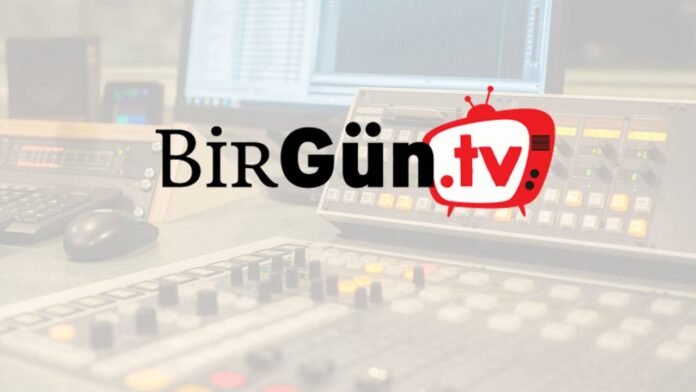Turkey’s media watchdog has given pro-opposition outlet BirGün TV 72 hours to apply for a license or face an access ban, a move opposition members say shows how licensing rules are being used to pressure critical media, the BirGün daily reported.
The Radio and Television Supreme Council (RTÜK) approved the measure by majority vote on Thursday, the fourth day of BirGün TV’s new season. If the outlet does not file within 72 hours, the regulator said it will seek a court-ordered block.
BirGün TV launched its new season September 1 on YouTube with Medyaterapi, a weekday news talk show moderated by veteran journalist Zafer Arapkirli that airs live at 11 a.m., featuring daily guests and analysis of current affairs.
BirGün’s board chairman, İbrahim Aydın, said the outlet will challenge the ruling in court. “We were not surprised that RTÜK convened and demanded a license less than a week after we began live broadcasts,” he said. “They have used every means to try to silence us for years. No institution or person has succeeded. This rushed decision shows we are on the right path. We will appeal and — with our readers’ support — continue and grow what we started. We are more determined than yesterday.”
Opposition-appointed RTÜK members denounced the decision and alleged selective enforcement.
İlhan Taşcı of the main opposition Republican People’s Party (CHP) said that while “dozens of pro-government channels” operate freely, critical outlets face swift sanctions.
Council member Tuncay Keser said RTÜK is making “selective” choices among thousands of YouTube broadcasters. He said licensing fees and content oversight place “independent journalism and pluralism in the crosshairs,” creating “a single-voice social media.”
Necdet İpekyüz from the Peoples’ Equality and Democracy Party (DEM Party) questioned whether the rules are applied equally. “Press freedom, pluralism and predictable law are safeguarded only by equality,” he said, calling equal enforcement key to a “democratic media order.”
RTÜK’s recent actions are part of systematic censorship of opposition media, with other networks — including NOW TV, Halk TV and Sözcü TV — also facing bans and fines for their coverage of politically sensitive issues.
It is common for pro-opposition news channels in Turkey to face restrictions on their broadcasting through sanctions imposed by RTÜK, whose board members are appointed in proportion to the number of seats held by political parties in parliament, meaning that the ruling Justice and Development Party (AKP) currently dominates the agency.
Turkey, which has been suffering from a poor record of freedom of the press for years, ranks 159th among 180 countries in the Reporters Without Borders (RSF) 2025 World Press Freedom Index.















